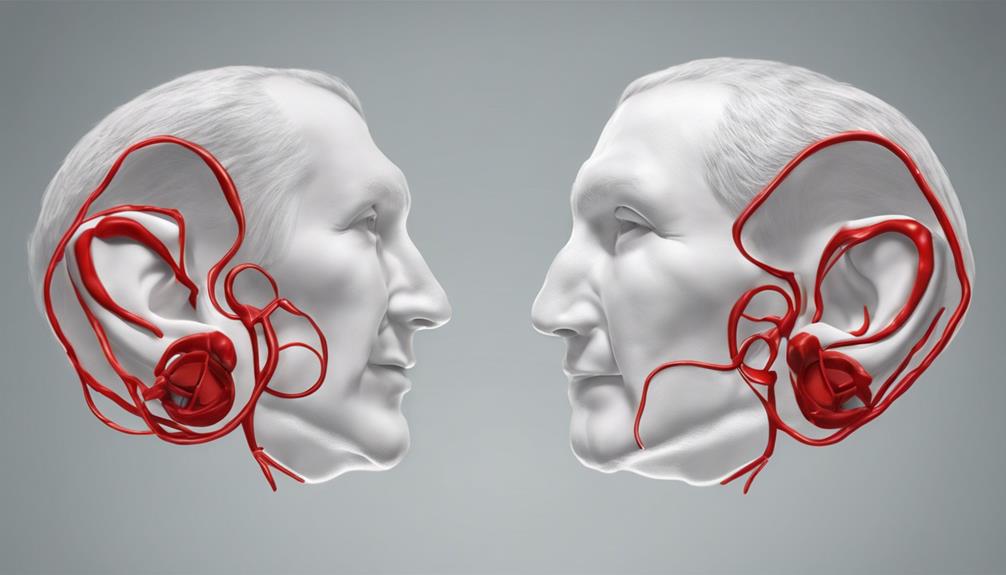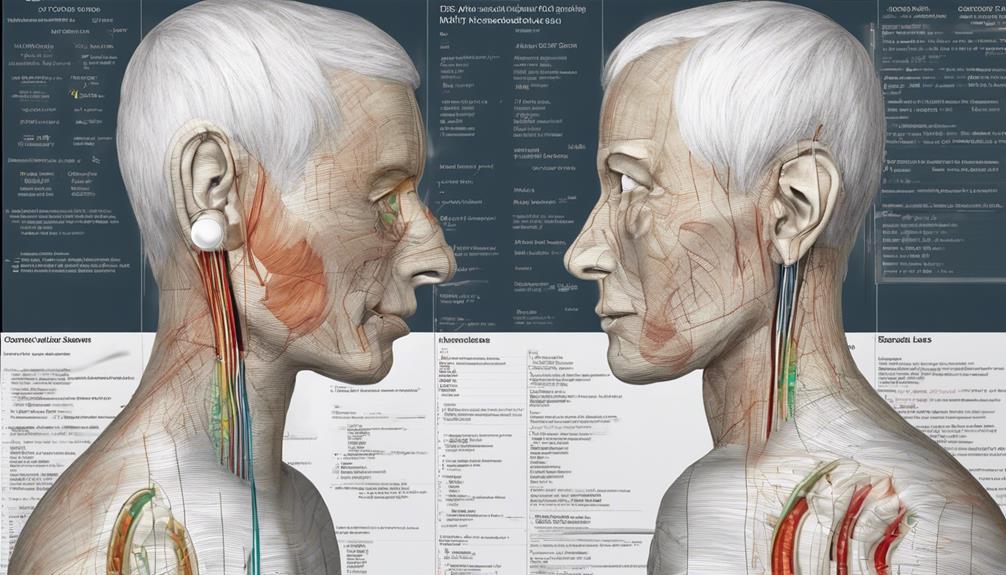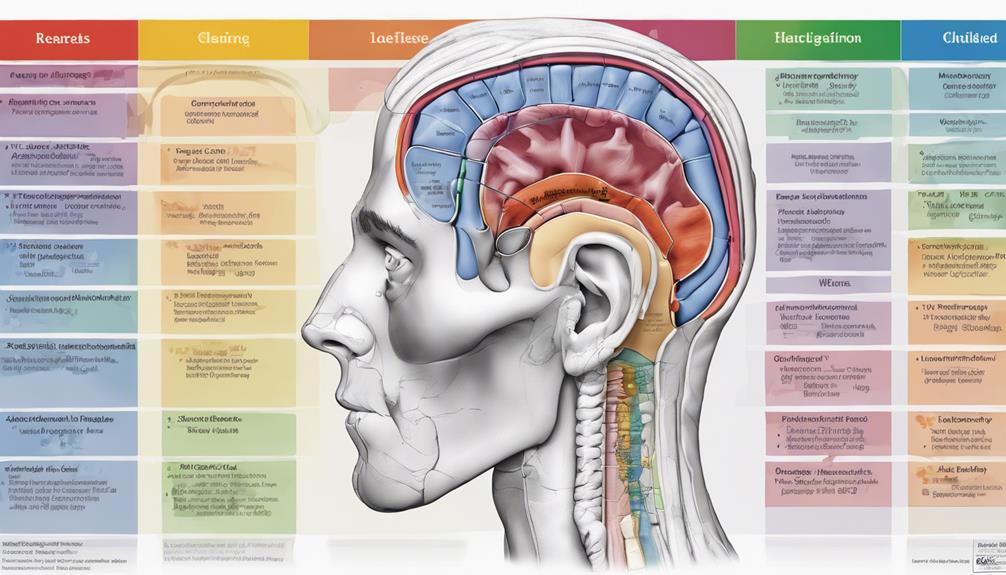When delving into the intricate realm of ICD codes for bilateral hearing loss, one must pay careful attention to detail and accuracy.
Deciphering these codes requires a nuanced understanding of the classifications, descriptors, and nuances embedded within them.
As we peel back the layers of complexity, a deeper comprehension emerges, shedding light on the critical role these codes play in shaping treatment pathways and ensuring accurate reporting.
Join us as we unravel the mysteries of bilateral hearing loss ICD codes, illuminating a path towards clarity and efficiency in clinical practice.
Key Takeaways
- ICD codes classify bilateral hearing loss accurately, aiding in diagnosis and treatment.
- Proper code selection facilitates billing accuracy and insurance claims for dual-sided hearing impairment.
- Accurate documentation ensures reimbursement and smooth claim processes for bilateral hearing loss.
- Understanding ICD guidelines and resources enhances precise coding and communication in healthcare settings.
Overview of Bilateral Hearing Loss ICD Codes
When diagnosing bilateral hearing loss, healthcare providers rely on specific ICD codes to accurately classify the impairment in both ears. These codes play a crucial role in determining the type and severity of hearing loss experienced by patients. By utilizing bilateral hearing loss ICD codes, healthcare providers can effectively diagnose and treat individuals with impairment in both ears. Moreover, understanding these codes is essential for precise medical billing and successful insurance claims related to patients' hearing health.
Healthcare professionals use bilateral hearing loss ICD codes to streamline communication among themselves, ensuring that all involved parties have a clear understanding of the patient's condition. These codes serve as a universal language in the medical field, allowing for accurate documentation and seamless transfer of information regarding bilateral hearing loss cases. By employing the appropriate ICD codes, healthcare providers can enhance the quality of care provided to patients with dual-sided hearing issues.
Importance of ICD Codes for Bilateral Hearing Loss
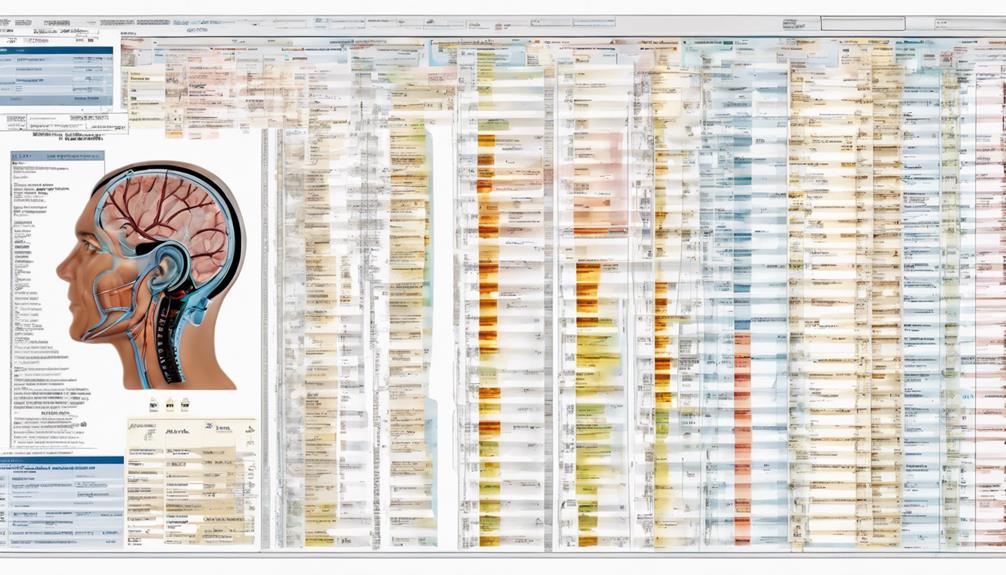
Utilizing accurate ICD codes is essential in healthcare for precisely categorizing and communicating diagnoses of bilateral hearing loss. When it comes to bilateral hearing loss, the importance of ICD-10 codes can't be overstated. Here's why:
- Accurate Documentation and Billing: Proper ICD coding enables healthcare providers to document bilateral hearing loss diagnoses effectively, ensuring accurate billing for treatments provided to patients.
- Consistency in Medical Record Keeping: Understanding bilateral hearing loss ICD codes promotes consistency in medical record keeping. This consistency is crucial for tracking the progression of the condition, planning treatments, and analyzing data related to the severity of the hearing loss.
- Insurance Reimbursement: Accurate ICD coding for bilateral hearing loss plays a vital role in insurance reimbursement processes. Using the correct codes helps streamline the reimbursement process, ensuring healthcare providers are fairly compensated for the services they provide in managing bilateral hearing loss.
Commonly Used ICD Codes for Bilateral Hearing Loss

Common ICD codes play a crucial role in accurately categorizing bilateral hearing loss for effective diagnosis and treatment planning in healthcare settings. When it comes to bilateral hearing loss, specific ICD-10 codes are used to denote the type and laterality of the condition.
For instance, code H90.0 is employed for bilateral conductive hearing loss, while code H90.3 represents bilateral sensorineural hearing loss. It's important to differentiate between conductive and sensorineural hearing loss as the treatment approaches may vary.
Additionally, there are distinct codes for unilateral and unspecified hearing loss, emphasizing the need for precise coding to ensure the appropriate management strategies are implemented.
Accurate coding of bilateral hearing loss is essential for healthcare professionals to make an accurate diagnosis and devise effective treatment plans tailored to the patient's specific condition, highlighting the significance of utilizing the correct ICD codes in clinical practice.
Billing and Reimbursement With ICD Codes
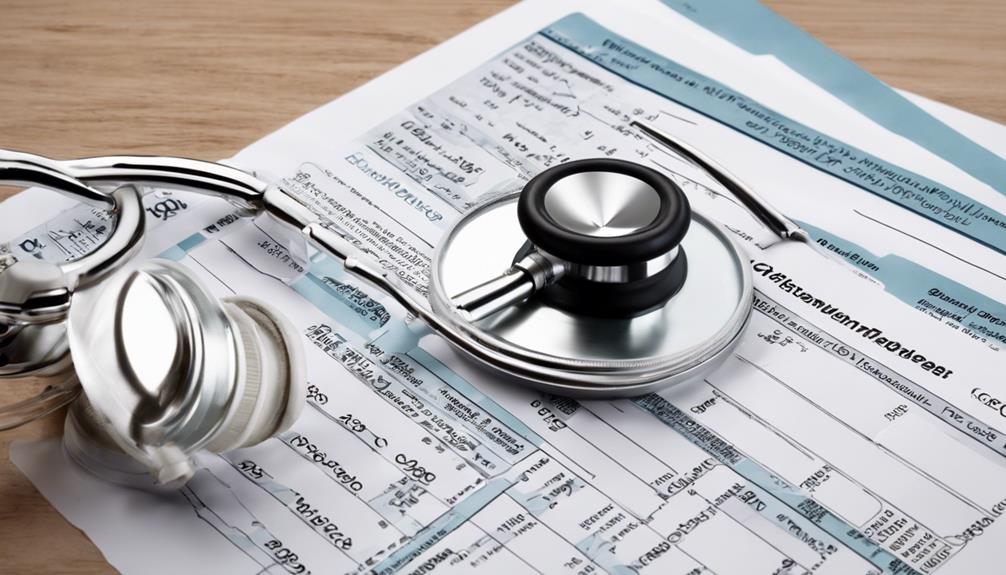
Proper selection of the correct ICD-10 code is imperative for ensuring accurate billing and reimbursement processes in healthcare settings. When dealing with bilateral hearing loss, understanding the specific ICD-10 codes is crucial for proper claim submission.
Here are three key points to consider when it comes to billing and reimbursement with ICD codes:
- Reimbursement Rates: Reimbursement rates can vary depending on the ICD-10 codes used for billing bilateral hearing loss. It's essential to use the most appropriate code to maximize reimbursement.
- Documentation: Providers must ensure that the documentation supports the selected ICD-10 codes for bilateral hearing loss. Clear and detailed documentation helps in justifying the chosen codes during the reimbursement process.
- Claim Denials: Incorrect or inadequate ICD-10 code selection can lead to claim denials. In case of denials related to bilateral hearing loss, providers should consider rebilling with the correct ICD-10 code to resolve the issue promptly. Proper billing practices reduce the likelihood of claim denials and ensure smoother reimbursement processes.
Resources for Understanding ICD Codes
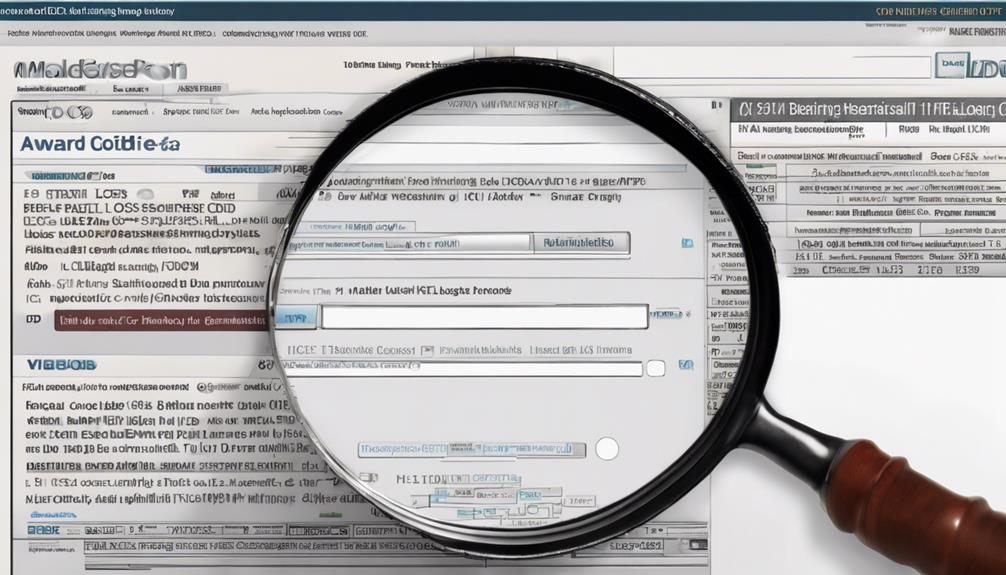
For a comprehensive understanding of ICD codes related to bilateral hearing loss, exploring available resources is essential. When dealing with the ICD-10-CM Code H90.3 for bilateral sensorineural hearing loss, adherence to coding guidelines is crucial for accurate classification.
It's important to note the Excludes1 conditions for H90.3, which include noise-induced and ototoxic hearing loss. Forums and resources play a pivotal role in facilitating discussions and answering questions related to ICD-10-CM coding, offering a platform for professionals to enhance their knowledge.
Proper documentation is a cornerstone for ensuring precise claim submission concerning bilateral hearing loss, as it supports the accurate coding of diagnoses and treatments. By utilizing these resources effectively, healthcare providers can navigate the complexities of ICD coding, leading to improved understanding and proficiency in the classification of bilateral sensorineural hearing loss.
Frequently Asked Questions
What Is the ICD-10 Code for Bilateral Hearing Loss?
We know the ICD-10 code for bilateral hearing loss is H91.93. It signifies hearing impairment in both ears and applies when the specific cause is unspecified.
This code falls under the category of Diseases of the ear and mastoid process.
Proper utilization of H91.93 is crucial for accurate billing and treatment planning for bilateral hearing loss.
What Is the ICD-10 Code for Hearing Loss Bilaterally 2023?
We use the ICD-10 code H91.93 for bilateral hearing loss in 2023. This code signifies unspecified hearing loss in both ears if the cause or type isn't specified.
It's crucial for accurate coding, billing, and tracking of bilateral hearing loss cases. Healthcare providers must ensure precise use of this code to reflect the bilateral nature of the condition in medical records and claims, aiding in effective patient care and management.
What Is the ICD-10 Code for Bilat Mixed Hearing Loss?
The ICD-10 code for bilateral mixed hearing loss is H90.5. It signifies a combination of conductive and sensorineural hearing loss in both ears, impacting sound clarity across frequencies. Accurate coding of this condition is crucial for effective diagnosis and treatment planning.
Healthcare providers rely on this specific code to manage bilateral mixed hearing loss efficiently. Understanding the ICD-10 code H90.5 is essential in providing quality care for individuals experiencing this type of hearing impairment.
What Is Code for Bilateral Sensorineural Hearing Loss?
We use the ICD-10 code H90.3 to classify cases of bilateral sensorineural hearing loss. This condition impacts both ears and results from damage to the inner ear or nerves.
It's typically permanent and can be caused by factors like aging, genetics, or exposure to loud noises. Accurate coding with H90.3 is crucial for billing and treatment planning in medical records.
Conclusion
In conclusion, understanding bilateral hearing loss ICD codes is vital for accurate diagnosis and treatment. These codes serve as a crucial tool in healthcare for proper documentation and billing purposes.
By utilizing the correct codes, healthcare providers can ensure effective communication and reimbursement for services rendered. Just as a skilled artist selects the right brush for each stroke, using the appropriate ICD code allows for a clear and precise representation of auditory conditions in medical records.



